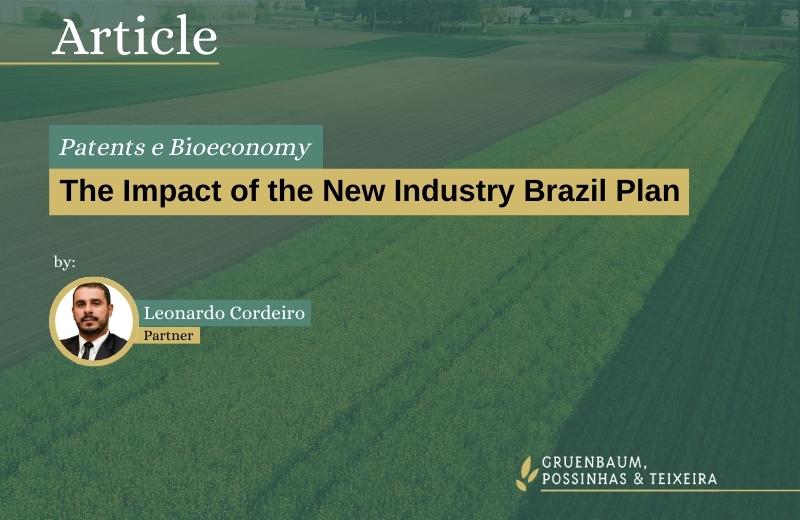Patents and Bioeconomy: The impacts of the New Industry Brazil Plan

On January 22nd, the Brazilian government announced the “New Industry Brazil Plan”, aiming to stimulate productivity, competitiveness, and sustainable economic growth, boosting national development using Intellectual Property as one of the main instruments for innovation.
The development plan for industry provides incentives of 300 billion Brazilian Reais in credit lines and subsidies for companies, outlining goals and guidelines until 2033, based on six missions linked to the following sectors: agribusiness, health, infrastructure, digital transformation, bioeconomy, intellectual property, and defense technology.
One of the most important themes is Bioeconomy, aiming for decarbonization and energy transition. A primary goal is developing a green industry, with priority given to financing technological solutions that seek to reduce pollutant gas emissions, as well as the development of biofuels and the generation of renewable energies.
Another extremely important issue is Intellectual Property. In this area, there is a plan to use the technological information available in patent documents to analyze technological trends and support strategic decision-making for the country, as well as actions to reduce the decision time of the Brazilian Patent Office (BTO) by 60% by 2026.
The Vice President of Brazil and Minister of Development, Industry, Trade and Services, Geraldo Alckmin, points out that the BTO was taking more than seven years to grant a patent. To reduce this timeframe, among other actions, hard work is needed to digitize and hire new human resources, and, according to him, this reduction is already underway. In fact, in 2023, this period fell to 6.2 years and, by the end of 2024, it should reach an average of 5.7 years.
An ambitious commitment for decisions within three years is set for 2025. This policy is crucial for innovation development in Brazil, since Intellectual Property, measured by the number of patent applications, can be a driver for technology protection and a key innovation indicator. The goal of granting patent within three years is challenging, but patent applications need to be submitted, technically analyzed and granted, so that Brazil can obtain quality concessions and, consequently, technology transfer, which will generate numerous advantages for our country, especially in relation to Universities and Research Centers, which always seek partnerships that can bring investments and feed back into research and innovation in these institutes.
Moreover, Intellectual Property holds significant relevance internationally, where investors bring their innovations to Brazil, promoting knowledge exchange, establishing businesses, generating jobs and being an active part of the Brazilian economy.
Finally, the government’s planned reduction in patent grant times still needs to be carefully analyzed, so that speeding up processes does not create legal uncertainty in the country. The BTO’s substantive examination must consider all instances provided by the Brazilian legislation, as well as offering all possible opportunities for amendments and corrections during the administrative sphere, provided such amendments do not expand beyond the initially disclosed patent application content.
